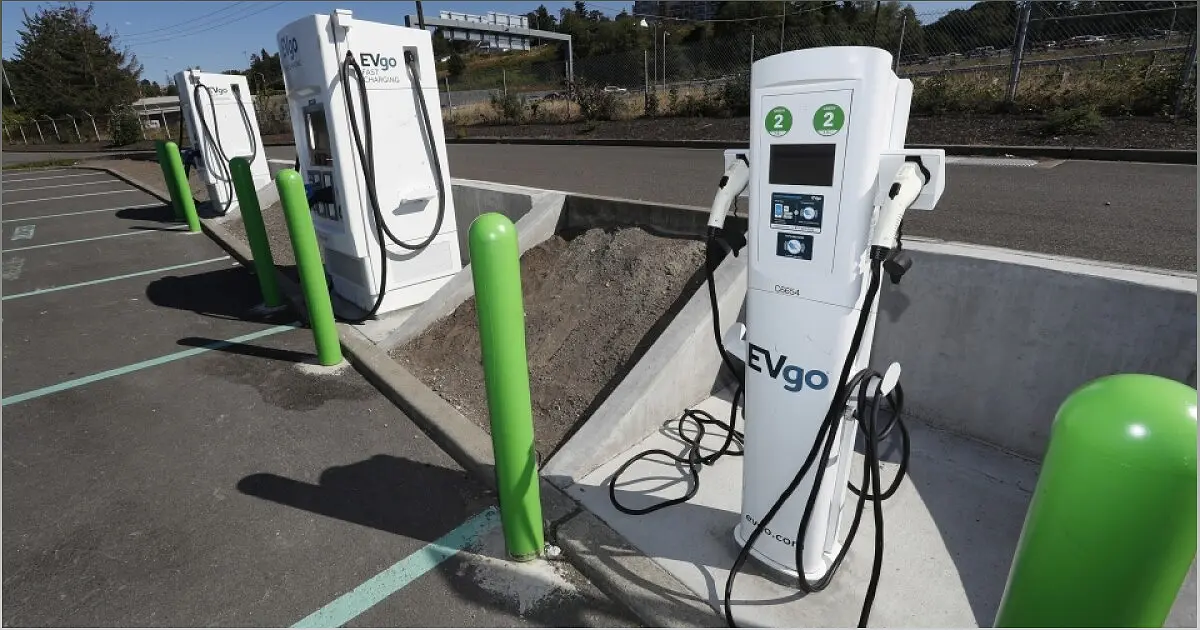As the automotive industry continues to evolve, one trend stands out: the surging demand for electric vehicles (EVs). In recent years, the interest in EVs has skyrocketed, reflecting a growing desire among consumers to embrace sustainable transportation options. This article delves into the factors driving this shift, the challenges faced by automakers, and the potential benefits of transitioning to an electric future.
The Rise of Electric Vehicle Sales
Exploring the surge in electric vehicle sales and its impact on the automotive industry.
Electric vehicle sales in the United States have been experiencing a remarkable surge, with expectations of reaching 1 million units by Thanksgiving. This significant milestone reflects a growing shift in consumer preferences towards more sustainable transportation options. The increasing demand for electric vehicles is reshaping the automotive industry and prompting automakers to reconsider their strategies.
While some manufacturers have expressed concerns about cooling demand for electric vehicles, dealerships are witnessing a radical increase in customer interest. This trend is further fueled by the availability of federal and state tax credits, making electric vehicles more financially attractive to consumers.
Challenges in the Electric Vehicle Market
Examining the obstacles faced by automakers and consumers in the adoption of electric vehicles.
Despite the growing demand for electric vehicles, several challenges hinder their widespread adoption. One of the primary concerns is the higher upfront cost compared to traditional gasoline-powered vehicles. Electric vehicles generally come with a higher price tag, making them less accessible to some consumers.
Another obstacle is the limited availability of charging infrastructure. While efforts are being made to expand the charging network, the lack of widespread accessibility and fast-charging options remains a concern for potential electric vehicle owners.
Additionally, high interest rates on car loans pose a financial barrier for many buyers. Although tax credits help offset the initial cost, the overall affordability of electric vehicles is still a consideration for consumers.
The Cost Savings of Electric Vehicles
Highlighting the potential long-term financial benefits of owning an electric vehicle.
While electric vehicles may have a higher upfront cost, they can lead to significant savings in the long run. The cost of electricity is generally lower than gasoline, resulting in reduced fuel expenses for electric vehicle owners.
Moreover, electric vehicles require less maintenance compared to traditional vehicles. With fewer moving parts and no need for oil changes, electric vehicle owners can save on routine maintenance costs.
Furthermore, as the market for electric vehicles expands, economies of scale are expected to drive down prices. Increased competition and advancements in technology will contribute to more affordable electric vehicle options in the future.
The Future of Electric Vehicles
Exploring the potential of electric vehicles in shaping a sustainable future.
The transition to electric vehicles plays a crucial role in achieving a sustainable future. As governments and organizations prioritize environmental conservation, electric vehicles offer a cleaner and greener alternative to traditional combustion engines.
Advancements in battery technology and charging infrastructure will continue to propel the growth of electric vehicles. With increased range, faster charging times, and improved affordability, electric vehicles are poised to become the norm rather than the exception.
However, realizing the full potential of electric vehicles requires collaborative efforts from governments, automakers, and consumers. Investing in charging infrastructure, providing incentives, and raising awareness about the benefits of electric vehicles are key steps towards a sustainable transportation future.
Conclusion
The surging demand for electric vehicles reflects a growing shift towards sustainable transportation options. Despite challenges such as higher upfront costs and limited charging infrastructure, the long-term cost savings and environmental benefits make electric vehicles an attractive choice for consumers.
As the automotive industry continues to innovate and advance battery technology, electric vehicles are poised to become the norm in the future. Collaborative efforts from governments, automakers, and consumers are essential in realizing the full potential of electric vehicles and creating a sustainable transportation future.
FQA
Are electric vehicles more expensive than traditional gasoline-powered vehicles?
Yes, electric vehicles generally have a higher upfront cost compared to traditional vehicles. However, they offer long-term cost savings in terms of fuel expenses and maintenance.
Is charging infrastructure widely available for electric vehicles?
While efforts are being made to expand the charging network, the availability of charging infrastructure is still limited in some areas. However, the network is continually growing, and advancements in fast-charging technology are improving accessibility.
Are electric vehicles better for the environment?
Yes, electric vehicles produce zero tailpipe emissions, reducing air pollution and greenhouse gas emissions. They play a crucial role in achieving a sustainable future and combating climate change.
Will the price of electric vehicles decrease in the future?
Yes, as the market for electric vehicles expands and technology advances, economies of scale will drive down prices. Increased competition among automakers will also contribute to more affordable electric vehicle options.

